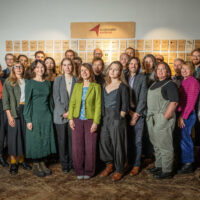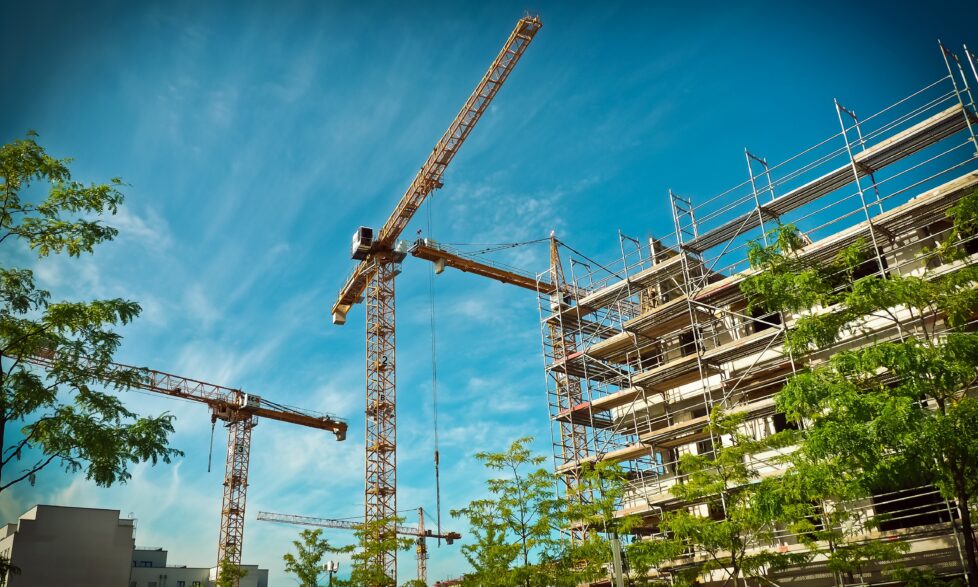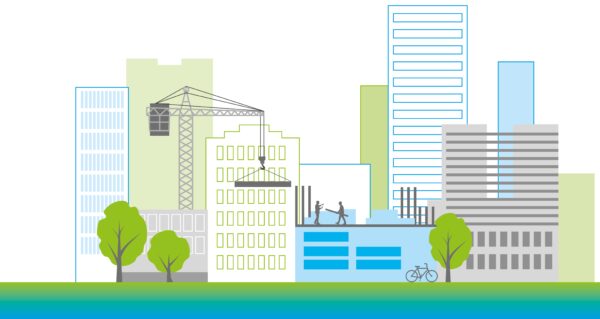International Women’s Day 2018 – women in the built environment
The UK construction sector is struggling to attract women, which is an issue when you consider the desperate need to recruit new talent and to create more gender-balanced workplaces.
We asked some of the women we work with (including our own colleagues) to share their thoughts on the issue, and why it’s vital more women feel as though a career in the built environment is open to them.
Sue Riddlestone OBE, CEO and co-founder of Bioregional
“Today I am at ecobuild, the UK’s leading sustainable built environment tradeshow. The theme for this event is the UN's Sustainable Development Goals and I encourage attendees to consider Goal 5: ‘Achieve gender equality and empower all women and girls.’
We all know that diverse workplaces are more successful, and research backs this up. So it’s positive to see companies in the construction sector striving to create a more balanced sector, as it will help us achieve this Goal. There’s clearly a long way to go though.
I’ve worked with so many brilliant women (as well as brilliant men!) in the built environment – if we can attract more of them, all the better. Let’s build a more equal world, while we build our buildings!”
Sue Riddlestone is Bioregional’s CEO and co-founder. She has worked in the built environment for 20 years and is also helping drive action for the Sustainable Development Goals in the UK.
Dr Ozak Esu, Technical Lead at BRE (formally Electrical Engineer at Cundall)
I am in my early career and my experience working within the built environment has been good. I attribute my positive experience thus far to the campaign by many preceding female engineers, and a few male ones too. However, this is not an experience enjoyed by all female engineers within the sector, and there is also still a massive under-representation of women and ethnic minorities like me especially at executive/managerial level.
I believe, more emphases and training on unconscious bias in the workplace, along with tailored and inclusive leadership programmes for both women and men are required to advance equality within the sector at decision-making level. Until these issues are addressed, equality cannot be achieved.
The press for progress towards a gender-equal sector is for the benefit of both women and men – “allies”. As humans, we perceive, live, think, experience, and work differently. Imagine the creativity that can be achieved through the equal representation of all within the sector.”
Ozak was recently awarded the Young Woman Engineer of the Year Award. Cundall, an international engineering consultancy, has been using One Planet Living at its own offices and with its partners for the last six years.
Nicole Lazarus, Oxfordshire Programme Manager at Bioregional
“I’ve been working in construction for more than 30 years and it has changed a lot in that time – it’s definitely more accessible to women than it used to be!
But it is still a male-dominated sector, and this means it’s not always seen as a career option to young women. This is a shame, not only because of the loss of valuable expertise to the industry but also because it can be a very rewarding and exciting place to work.
I look forward to seeing more firms showcasing the benefits of more diverse workplaces and helping inspire a younger generation of women to see the variety of careers open to them.”
Nicole led Bioregional’s work on the BedZED eco-village in the early 2000s, as well as our support for NW Bicester, the UK’s first eco-town, from 2010-2017. She was listed in Building Magazine’s Top 50 rising stars of sustainability for 2012 and was a finalist in the Outstanding Women in Construction Awards 2014
Emma Weller, BIM (Building Information Modelling) Co-ordinator at Elementa Consulting
“In a time where it is critical to collaborate and join forces against worldwide issues such as climate change, I want to inspire more women to discover a career within the construction industry.
When deciding on my own career at 16, I challenged the norm by entering the building sector focusing within 3D Modelling and BIM. The fast track experience I have gained has allowed me to push the boundaries within building design when working on multi-million pound developments, which is both inspiring and rewarding, especially when a design I have worked on becomes reality.
This sense of achievement, among other copious incentives, is why I believe the promotion of the construction industry to women should begin while in education, so these amazing opportunities are not missed.
As well as those interested in science and maths, I want to endorse other skills necessary such as creative thinking and visualisation with the intention of breaking down stereotypes for future generations.
With over 9 years’ experience in the construction industry Emma is an integral part of Elementa’s London Office. Her project experience ranges from Data Centre, Healthcare and large-scale metro projects both in the UK & Overseas. Elementa is part of Integral Group.
This week Bioregional is at ecobuild 2018 calling for the built environment industry to take action for the Sustainable Development Goals in the UK. This includes Goal 5: Achieve gender equality and empower all women and girls.
Build a better future: the built environment and the Sustainable Development Goals
Built environment companies are struggling to get to grips with the Sustainable Development Goals. So we've created an easy-to-digest guide with practical advice on how to get started. Let's build a better future together
Download PDF







